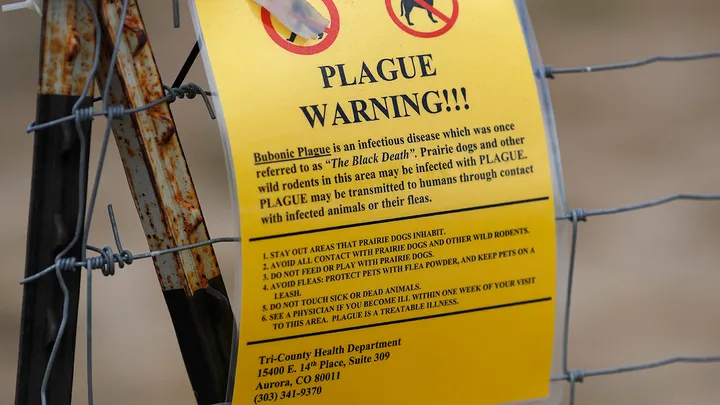News has broken of a rare and tragic event in Arizona: a resident has died from pneumonic plague, marking the first deadly case in the area in nearly two decades. This news understandably raises concerns, and it’s important to understand the facts about this disease, how it’s transmitted, and what precautions can be taken. Let’s delve into the details.
Understanding Pneumonic Plague: A Rare Occurrence

The plague, caused by the bacterium Yersinia pestis, is primarily a disease of rodents. Humans typically contract it through the bite of infected fleas or through direct contact with infected animals. Pneumonic plague, however, is a more serious form because it can be transmitted from person to person through respiratory droplets. While historically devastating, modern medicine has made plague cases incredibly rare and treatable, especially when caught early.
What is Pneumonic Plague Specifically?

Pneumonic plague affects the lungs. Unlike bubonic plague, which causes swollen lymph nodes (buboes), pneumonic plague manifests with symptoms similar to severe pneumonia. This includes:
- Fever
- Cough (often with bloody sputum)
- Chest pain
- Difficulty breathing
- Rapidly developing pneumonia
Without prompt treatment with antibiotics, pneumonic plague can be fatal within 24 to 72 hours of the onset of symptoms.
How is Pneumonic Plague Spread?

While flea bites and contact with infected animals are common routes for other forms of plague, pneumonic plague is primarily spread through:
- **Respiratory droplets:** When someone with pneumonic plague coughs or sneezes, they release infectious droplets into the air. These droplets can then be inhaled by others nearby.
This human-to-human transmission is what makes pneumonic plague particularly concerning, although again, with proper precautions and prompt treatment, the risk of widespread outbreaks remains very low.
The Arizona Case: Details and Public Health Response

The Arizona Department of Health Services is actively investigating the recent death due to pneumonic plague. While specific details are often kept private to protect the individual and their family, public health officials are taking the following steps:
Investigation and Contact Tracing

The first step is to identify and contact anyone who may have been in close contact with the infected individual. This process, known as contact tracing, helps determine if anyone else may have been exposed and allows for prompt testing and preventative treatment if necessary.
Public Health Recommendations

Although the risk to the general public is considered low, the Arizona Department of Health Services is likely reinforcing standard public health recommendations, which typically include:
- **Rodent Control:** Taking measures to control rodent populations around homes and businesses. This includes removing food sources, sealing entry points, and using traps.
- **Flea Prevention:** Using insect repellent containing DEET or picaridin, especially when outdoors.
- **Avoiding Sick Animals:** Avoiding contact with sick or dead animals, especially rodents and rabbits.
- **Seeking Medical Attention:** Consulting a healthcare professional immediately if you develop symptoms consistent with plague, such as fever, chills, and swollen lymph nodes, or respiratory symptoms like cough and shortness of breath.
Preventing Plague: Simple Steps to Stay Safe

While the case in Arizona is a reminder of the potential for plague, it’s important to remember that it’s a rare disease, especially in modern times. Taking a few simple precautions can significantly reduce your risk:
- **Control Rodents Around Your Home:** Keep your yard clean and free of debris that can attract rodents. Store food in sealed containers and dispose of garbage properly.
- **Use Insect Repellent:** Apply insect repellent containing DEET or picaridin when spending time outdoors, especially in areas known to have rodent populations.
- **Protect Your Pets:** Talk to your veterinarian about flea and tick prevention for your pets. Keep pets away from wild rodents and rabbits.
- **Wear Gloves:** When handling animals, especially wild animals, wear gloves to prevent direct contact with potentially infected tissues.
- **Report Sick or Dead Animals:** If you find sick or dead animals, especially rodents or rabbits, report them to your local health department.
Conclusion: Staying Informed and Taking Precautions

The death of an Arizona resident from pneumonic plague is a serious event, but it doesn’t need to cause widespread panic. Plague is treatable with antibiotics, and public health officials are actively working to prevent further spread. By staying informed, following public health recommendations, and taking simple precautions like rodent control and flea prevention, you can significantly reduce your risk. Remember to consult your healthcare provider if you develop any concerning symptoms, especially if you’ve been exposed to rodents or fleas. The key is awareness and prompt action.
